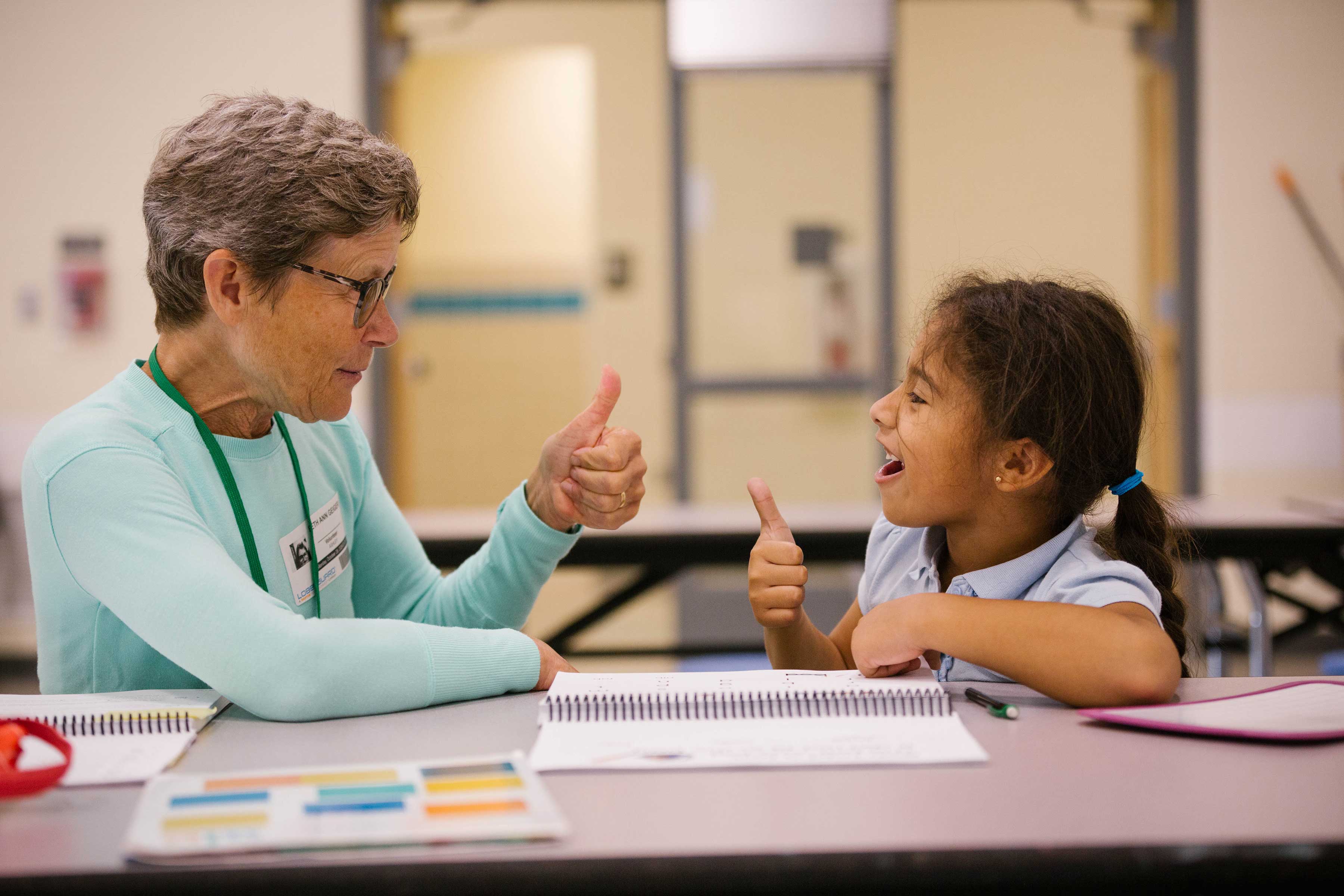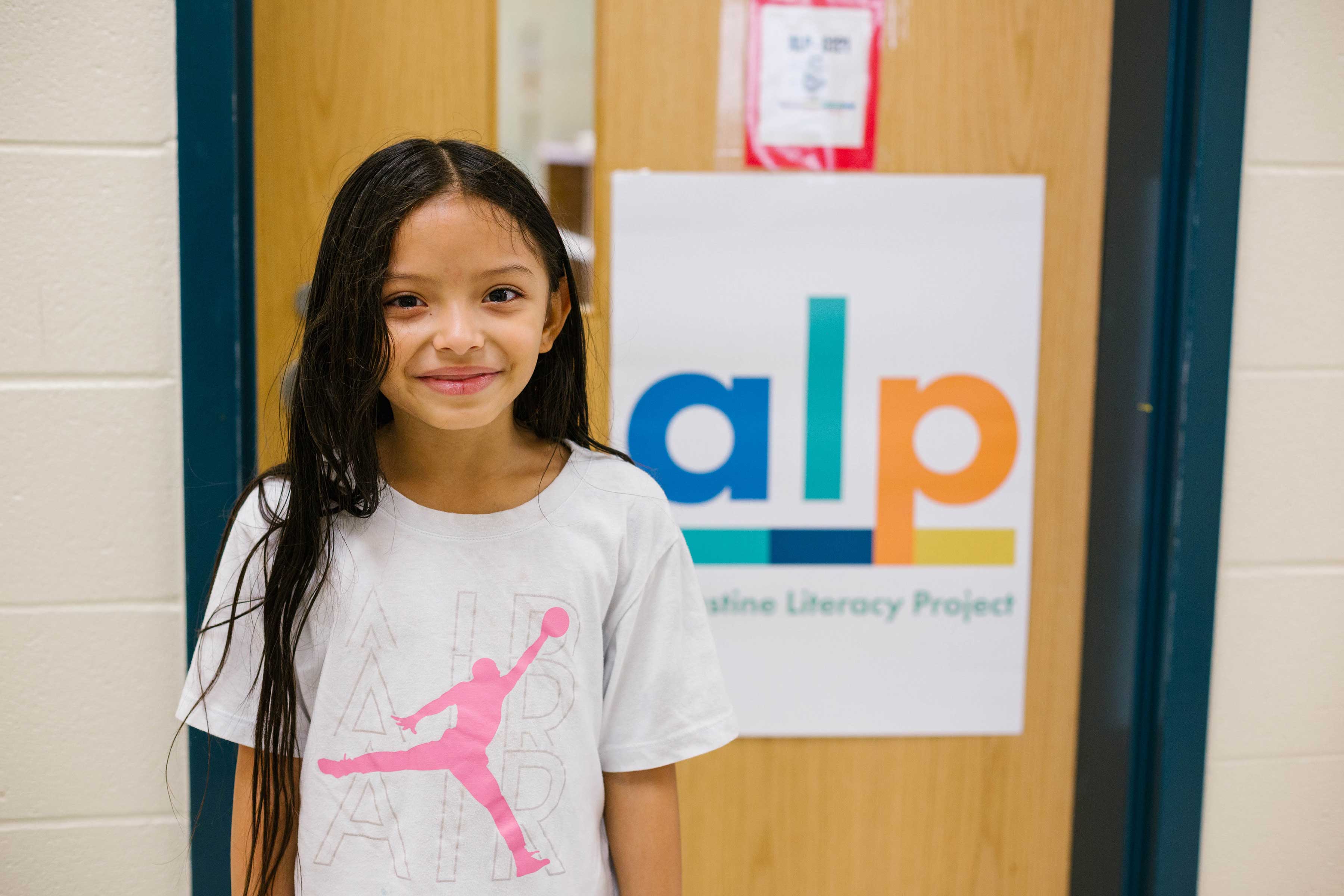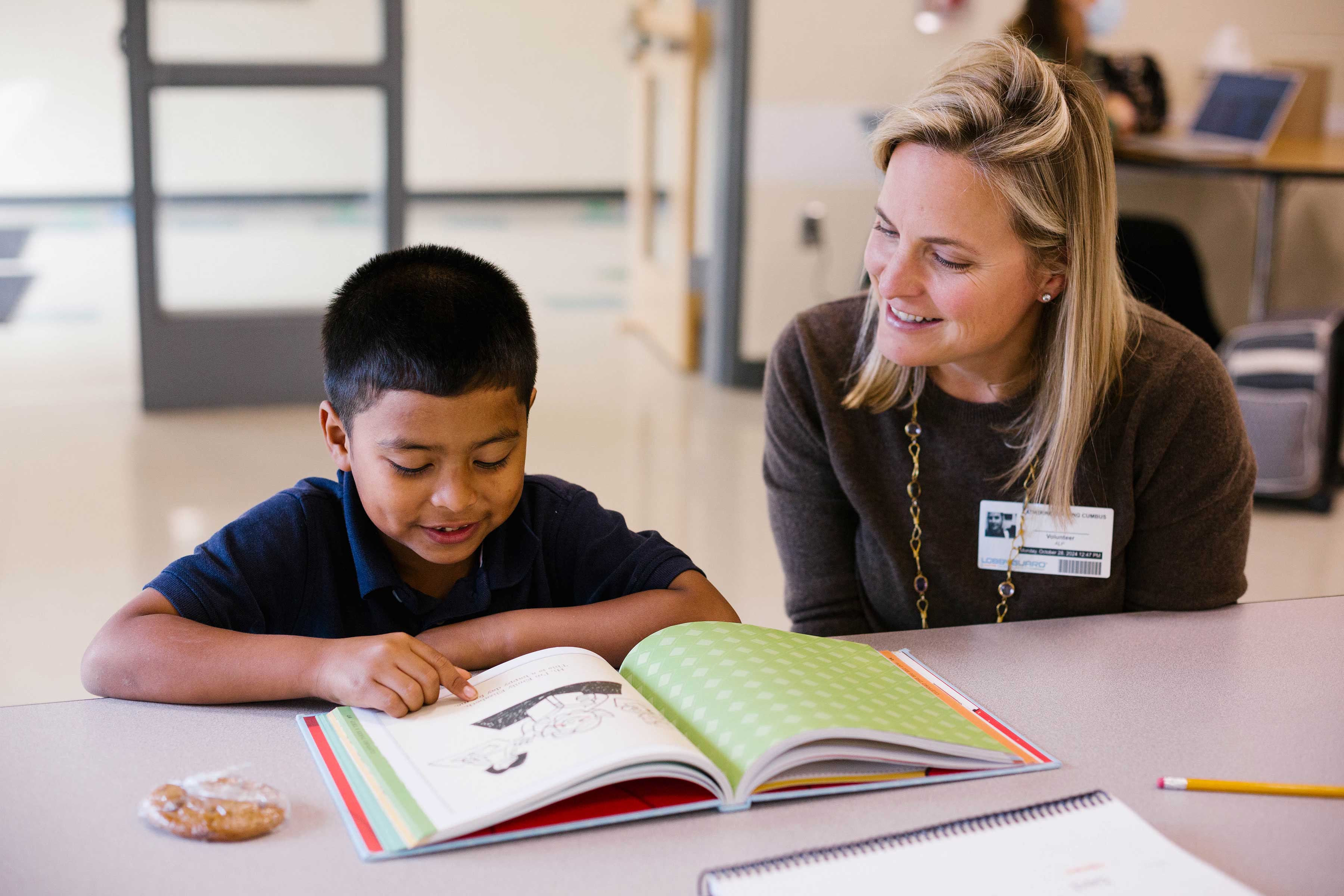Teaching Children to Love Reading
Augustine Literacy Project
SHARE
 The Augustine Literacy Project supports at-risk students throughout Charlotte with one-on-one instruction from highly trained tutors.
The Augustine Literacy Project supports at-risk students throughout Charlotte with one-on-one instruction from highly trained tutors.
So it is with children who learn to read fluently and well: They begin to take flight into whole new worlds as effortlessly as young birds take to the sky. – William James
The Augustine Literacy Project (ALP) takes seriously its mission to support the needs of at-risk students with reading, writing, and spelling with one-on-one instruction from highly trained tutors.
Recent statistics show that just 33 percent of Charlotte’s 4th graders are proficient readers. Children who are not reading at this milestone are unlikely to graduate from high school or lead financially stable lives. Fortunately, there is a solution to this problem. “There are 74 Title 1 elementary schools in the Charlotte-Mecklenburg school district, and we provide tutoring for students who are below grade level reading,” says Jessica Klasinski, ALP development director. “ALP has a proven intervention for struggling readers. We are the only nonprofit organization in Charlotte providing this evidence-based literacy instruction to students in first through second grades, during the school day.”
ALP uses tutors to accomplish their goals. “We have the skills to turn laypeople into highly effective literacy interventionists,” Jessica says. ALP uses the Orton-Gillingham-based approach, considered the gold standard for reading instruction. In the 2023-2024 school year, ALP provided free, multi-sensory, one-on-one instruction twice weekly to 427 students.
Tutors go through effective training and then are paired with a student and work with that student for one school year which equals about 60 sessions. Each session is 45 minutes to an hour during the school day. “The tutor works to help the student get up to grade level so when they go back in the classroom, they are able to participate,” Jessica says. “Our pre- and post-tutoring assessments consistently find that more than 90 percent of students improve 1.7 grade levels in one year.”
 Students go through about 60 sessions with tutors to help them improve their reading, writing, and spelling skills.
Students go through about 60 sessions with tutors to help them improve their reading, writing, and spelling skills.
 Volunteers go through extensive training and then enjoy the benefits of working with young students in Charlotte.
Volunteers go through extensive training and then enjoy the benefits of working with young students in Charlotte.
“We also believe that most students benefit emotionally from the consistent support their tutor provides, developing the confidence needed to overcome obstacles in and outside the classroom,” Jessica adds.
The pandemic made it difficult for tutors to work with students, but ALP quickly came up with an alternate plan. “The pandemic caused a big transition because we have always been an in-person model,” Jessica says. “We converted to digital tutoring, but it was clunky and not that efficient. We then partnered with a tech company to build out our digital program and then scale it. The interface is wonderful now and we found that it is just as effective as in person tutoring. The new technology also is helping us reach more students who need tutoring.”
ALP discovered that some tutors prefer working digitally so they do not have to drive long distances twice a week to meet with students at some of the more remote schools. At Newell Elementary School, 116 students in 1st and 2nd grade were identified as needing ALP intervention. “We were able to pilot our new technology at Newell and we have a great group of tutors working digitally to help these students,” Jessica says.
Andrea Howell serves as director of recruitment and community partnership at ALP. “We have a great training team for our tutors. We train and then continue to support our tutors. Their commitment is two days per week. We like tutors to commit to one year of tutoring, but of course, we want them to come back. We have a good retention rate because once people work with a student and see them make progress, they want to come back and work with more students. It’s pretty amazing.”
“We are enormously proud of the work we do at ALP, but we know we must do more,” Jessica says. “According to the Charlotte Executive Leadership Council, a group of local business and civic leaders, 20,000 public school students need the supplemental reading instruction ALP provides. Whether these children learn to read will help determine our city's long-term economic vitality. There is also the potential for ALP to partner with other affiliate organizations to expand their technology to communities outside the Charlotte area to help even more students improve their skills.”
TowneBank is honored to support ALP by providing a multi-year grant towards their critical programming, especially as they scale their digital platform across Charlotte and Mecklenburg County. “ALP is the premier organization in Charlotte helping children achieve the most basic need of being good readers,” says Ted Wolfe, TowneBank Charlotte president. “We are proud to partner with them and I look forward to some of our bankers potentially volunteering to be ALP tutors.”
To find out how you can help, visit ALPCharlotte.org.
